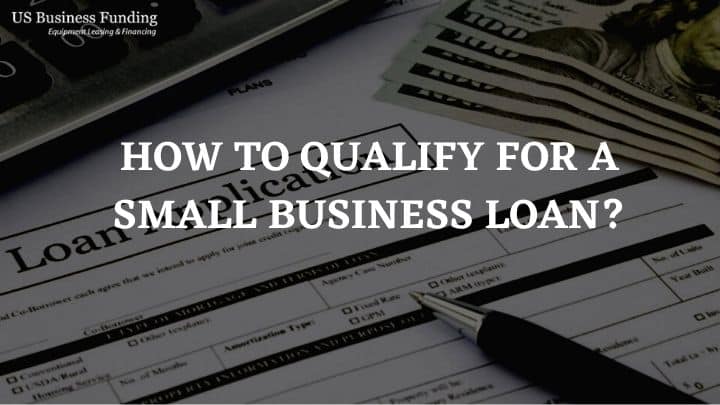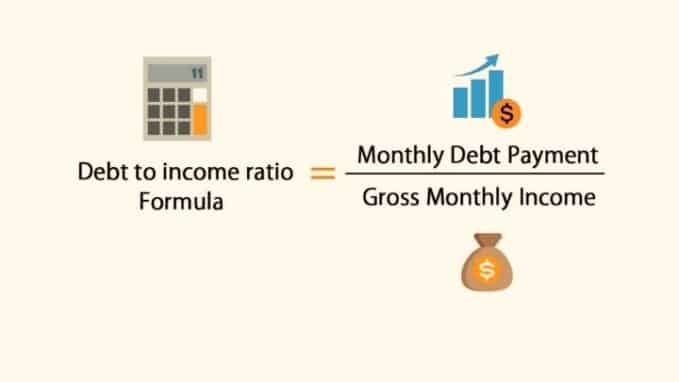How To Qualify For A Small Business Loan?
Posted on: May 18, 2022 | Category: Fund Your Business·Small Business Loans

Applying for a small business loan, whether to meet payroll or acquire merchandise, can help you get through tough times, boost your cash flow, or expand your business. While each lender has its own criteria, there are certain general loan requirements to be aware of before applying. If you understand the requirements of a lender before applying for a small business loan, it might help you succeed.
Let us look at the five steps to obtaining a small business loan.
Personal and Business Credit Scores:
When you apply for the best small business loans, a lender will look at both your business and personal credit reports to see how eligible you are. A negative personal credit report might damage your chances of getting approved for the loan. On the contrary, a strong credit score can help you get approved with better interest rate for monthly loan payments.
What constitutes bad or good personal credit scores depends on the credit scores methodology and rules a lender follows. FICO, one of the most used credit scoring algorithms, has a range of 300 to 850. When you have at least 670 as your credit score, your application comes under the “good credit score” category, while a score of less than 580 is deemed not good.
Some online lenders can accept you for a business loan even if your personal credit score is as low as 500. However, traditional lenders or any financial institution, such as a bank, may need a minimum credit score of 680.
What constitutes a good or negative business credit rating varies depending on the credit scoring methodology used by the lender, much like personal ratings. Credit bureaus such as Dun & Bradstreet (D&B) or PAYDEX, one of the most widely used corporate credit score models, span from 0 to 100. A good company score varies from 80 to 100, whereas a negative score ranges from 0 to 49.
Annual Business Revenue and Profits:
Minimum yearly income criteria are common. Also, some small business lenders have monthly revenue restrictions as well. Further, a lender will ask for your business bank statements and income tax returns to validate your earnings. If your bank statements are accessible, you may upload them manually or enable a lender to connect to your bank and evaluate them.
Furthermore, some business lenders may request copies of your profit and loss accounts to evaluate if you have enough positive cash flow for loan payments.
Time in Business:
Loan approval is more likely for businesses that have been in operation for a longer period. Traditional lenders often demand you to have at least two years in operation. However, minimum time requirements may vary. Applicants to online lenders are frequently required to have been in the company for six months to a year.
However, depending on the form of company finance, this need may differ. A lender may demand only three months of business experience for invoice factoring, including selling unpaid invoices to a factoring company.
Debt-Service Coverage Ratio:
Also known as DSCR, the debt-service coverage ratio evaluates your organization’s annual net operating income to its total yearly debt. Remember, the annual net operating income comprises EBITDA – earnings before interest, taxes, deductions, and amortization.
Divide your company’s EBITDA by the total annual debt to arrive at your DSCR. If total annual debt is $80,000 and EBITDA is $100,000, 1.25 ($100,000/$80,000) is the DSCR. A ratio of more than one indicates to a lender that your company will likely have adequate profit after costs.
Although DSCR criteria differ by lender, the best small business administration loans (small business loans) demand a DSCR of at least 1.15.
Debt-to-Income Ratio:

Some lenders will look at your debt-to-income (DTI) ratio to see if you can afford more debt. Your DTI ratio is a calculation that compares your monthly debt to your gross income.
The DTI ratio is calculated by dividing your monthly debt by your gross income. For instance, 50% will be the debt-to-income ratio ($10,000/$20,000) if your monthly debt is $10,000 and gross income is $20,000.
As a potential borrower, as your DTI ratio increases, the risk also increases. Each lender has different DTI standards. However, ideally, you should keep your DTI ratio at or below 43%.
Collateral for Secured Business Loans:
Unsecured and secured small business loans are available from lenders. When applying for a secured loan, you must pledge something of value as collateral, such as real estate or accounts receivable, that the lender may claim if you default on the loan.
Depending on your loan, the collateral requirements may differ. For example, you may use the loan to buy business assets such as equipment, a commercial car, or commercial real estate. In that case, those business assets acquired would be the collateral. This means that if you buy commercial printing equipment, the printer will act as collateral.
Furthermore, some lenders will need you to submit a personal guarantee, which implies you agree to the loan payments using your personal assets if the lender defaults.
Your Industry:
The industry in which you work has an impact on your loan eligibility. This is because each sector has a unique risk profile, and certain lenders are prohibited from cooperating with particular industries, such as adult entertainment, gaming, and not-for-profit organizations. Before you apply, check with the lender to see whether your industry qualifies.
Business Plan:

Some lenders, especially if you’re a startup, may need you to provide your business plan. This business plan may include:
- Financial forecasts
- The use of loan amount
- Industry prospects
- Competitive analysis
Your plan should cover a five-year estimate of business expenses, revenue, and cash flow, as well as a clear overview of how you intend to use the loan amount.
Common Documents Required for Business Loans:
Gather the necessary paperwork before applying for a loan. A lender will almost certainly require any or all of the following:
- Account statements
- Tax returns for individuals and businesses
- Permits and licenses for businesses
- Employee Identification Number (EIN)
- Evidence of collateral
- Balance Sheet
- A copy of your business lease
- Other debts information, if any
- Ownership and connections
- Accounts payable and receivable aging
- Legal agreements and contracts
- Driving permit
- Business Insurance plans
- Payroll documents
- Incorporation documents
- Business plan
Conclusion:
It’s not a bad thing to require a loan for your company. In reality, almost every company strategy includes acquiring a loan for future expansions or development.
Obtaining a loan to develop a firm is not a one-time business activity. During the course of doing business, many business owners take out and repay a succession of loans. The loans can fund purchases such as fleet vehicles, equipment, and real estate.
According to an SBA analysis, business owners have traditionally borrowed around $600 billion each year. Approximately 40% of small business owners borrow money each year. That isn’t to say that entrepreneurs are getting large loans.
When you apply for a loan, it’s critical to understand what lenders are looking for. Understanding what it takes to acquire a loan will assist you now and in the future.
Although an SBA loan requires more documentation, you might be surprised to learn that one of their alternatives is easier to qualify. Business owners who have been turned down for standard financing frequently use SBA loans.
Yes, completing the application and receiving the loan might take some time. You may have to check how to qualify for a small business loan from time to time. On the bright side, repayment lengths span from five to twenty-five years. Interest rates on loans are set according to risk, as with conventional commercial loans.
Whatever type of business you operate, you’ll probably need a loan at some point for expansion and renovations. Take action today to improve your chances of getting a small business financing.
Frequently Asked Questions:
Are small business loans hard to get?
Without a good personal score (beginning at 700) and consistent cash flow from your company, getting a small business loan might be difficult.
How much do you have to make to qualify for an SBA loan?
Your company must have less than 500 workers and annual revenue of less than $7.5 million for the last three years. Your tangible net worth should be less than $15 million and your net income must be less than $5 million (after taxes and excluding carry-over losses).
What disqualifies you from getting an SBA loan?
You have a bad credit history or a low total personal or business credit score. For the loan, you don’t have enough business assets or collateral to obtain your loan. You don’t have an adequate flow of cash or free capital to make payments. You have an excessive amount of debt already.
What qualifies as a small business for SBA?
Each NAICS code has a size standard assigned by the SBA. Most manufacturing enterprises with 500 workers or less and most non-manufacturing organizations with average annual sales of less than $7.5 million will be considered small businesses.
How long does it take for a business loan to be approved?
If you qualify for a small business loan, an SBA 7(a) loan is often approved in two to three months. If you have the option of dealing with an SBA Preferred Lender, your application might be approved considerably more quickly. Of course, the time it takes to authorize it depends greatly on you and your lender.







